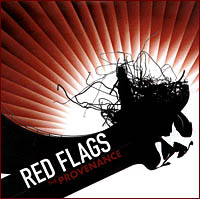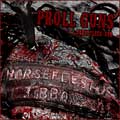THE PROVENANCE (se) - Red Flags (2006)

Label : Peaceville Records / Pias
Sortie du Scud : 30 octobre 2006
Pays : Suède
Genre : Metal atmosphérique
Type : Album
Playtime : 10 Titres - 48 Mins
En 10 ans de carrière, les Suédois ont considérablement fait évoluer leur musique. Fini le Doom/Death mélodique des débuts, THE PROVENANCE confirme le choix opéré sur l’album précédent How Would You Like To Be Spat At. On retrouve donc un Metal étrange, inclassable, qui privilégie les ambiances à l’efficacité des riffs ou à la facilité des mélodies. L’ensemble est donc assez planant, sensuel ; un vestige du Rock psychédélique des 70’s dont le groupe se sent proche. On retrouve également des structures assez complexes, qui peuvent avoir des aspects progressifs, tandis que certains passages témoignent du passé Doom du groupe.
Le chant contribue aussi à donner à cet album sa coloration Goth : le duo mixte parvient à une complémentarité dans les émotions. Avec son chant angélique, Emma Hellström semble parfois au bord des larmes tandis que Tobias Martinsson évolue dans un registre Goth plus classique.
Red Flags est un album très particulier mais résolument intéressant. Il séduira les amateurs d’ambiances torturées, mélancoliques, mais allergiques aux mièvreries et autres facilités du genre.
Ajouté : Mercredi 11 Octobre 2006
Chroniqueur : Alcor
Score :   
Lien en relation: The Provenance Website
Hits: 13115
|














